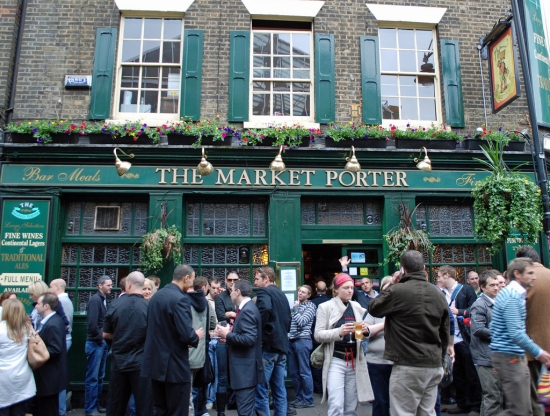The difficulties facing the pub trade have been well documented with CAMRA reporting that, on average, 16 pubs a week closed their doors in the second half of 2012. Although this figure is well down on that of 2009, when closures peaked at 52 a week, it is still a very worrying trend.

The reasons for this are a combination of economic factors and cultural changes that need to be addressed both collectively and individually. The Chancellor’s scrapping of the beer duty escalator in the recent budget, following vigorous campaigning and lobbying from the industry, is a welcome move.
However, there is still much to be done, in terms of creating a level tax playing field, before pubs are able to compete with supermarkets on an equal footing. In the meantime stemming the flow of closures must be the first priority as research shows that three out of four people believe a well-run pub is as important to a community as the post office or local shop.
Last week we reported that Chelsea’s historic Phene Arms had been saved from closure following its sale to the City Pub Company. Given that London has lost 1,300 pubs over the course of the past decade this is good news for both the industry and the community. Subsequently it has emerged that London pubs are now a step closer to being protected as “community assets” under Mayor Boris Johnson’s planning guidance for councils.
Under current legislation no planning permission is required to convert a pub into a shop, betting shop or restaurant. In addition it is also possible to demolish a free-standing pub without the need for planning permission.
In response to this situation the government introduced the Community Right to Bid scheme as part of its Localism bill. This legislation guarantees community groups the right to prepare a bid on any commercial property for sale that is deemed to be an “asset of community value.”
This right applies to both public and private assets. Besides pubs the list also includes amenities such as village shops, community centres, children’s centres, libraries and allotments. Local groups have a period of six months to put together a bid, during which time the property in question cannot be sold.
Recently the Ivy House pub in South East London became the first in the country to be saved in this way after locals rallied round and raised the money to purchase it themselves. Community Pubs Minister Brandon Lewis welcomed this landmark sale and called on other community groups to take advantage of the Right to Bid.
“We are determined to see more communities across the country follow in the Ivy House’s footsteps so we are working with CAMRA to encourage people to list their local as a way to safeguard the future of their favourite pub using their new community right.
“We’ve also extended the tax breaks for small firms like community pubs for another tax year,” he said.
The group behind the rescue of the Ivy House has launched a community share scheme enabling local people to buy shares, boosting the pub’s long-term prospects.

Under Boris Johnson’s proposals the onus will lie with the council rather than with the local community. This would involve the drawing up of specific criteria for planning applications concerning pubs. For example, this might include a requirement to demonstrate that the property had been vacant for at least two years.
“Good pubs are an asset to London’s communities. They deserve to be mentioned specifically in the mayor’s forthcoming planning guidance to borough councils – at the moment they are covered as a broad generalisation.
“Unfortunately, a high number of these pubs are demolished or converted to other uses such as residential and retail services which radically alter community spaces and change the tone of the high street,” Assembly member Steve O’Connell told the Evening Standard.
April is Community Pubs Month and CAMRA is calling on more people to list their local pub. Full details of how to go about this are available to download from the CAMRA website.
Previous Post
Hines Commits to Landmark Manchester Office Development